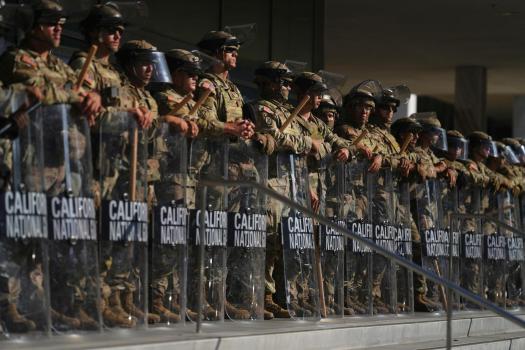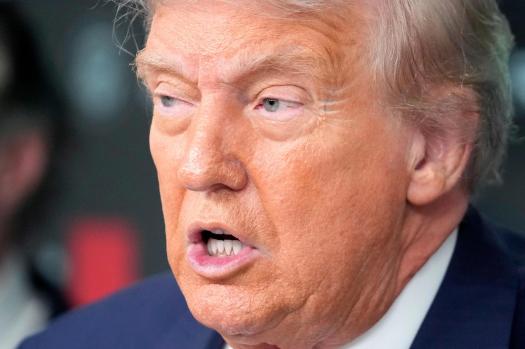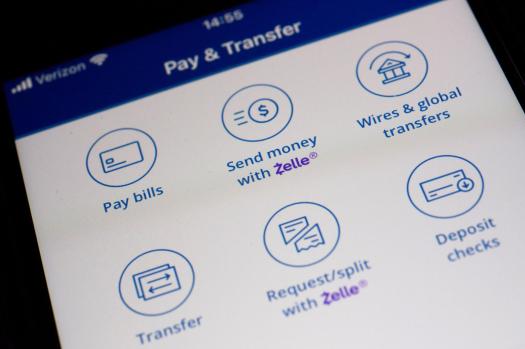By John Sewer, Heather Hollingsworth, and Jeff Martin
Atlanta (AP) The most recent assault on healthcare professionals amid pandemic-related animosity was a flurry of leaflets thrown at the U.S. Centers for Disease Control and Prevention offices last week by a man police believe was upset about COVID-19 immunizations.
Related Articles
-
Mexico says 26 capos sent to US were requested by Trump administration, not part of tariff talks
-
Jury finds Texas couple guilty of concealing and harboring bakery workers in the US illegally
-
Trump administration ordered to restore some withheld grant funding to UCLA
-
A tale of two Chief Pams: Federal takeover brings confusion over command of DC police
-
Trump and Putin will meet at an Alaska military base long used to counter Russia
Given the persistent disinformation and hostility regarding the safety of vaccines, several public health professionals believe that the shooting that killed a police officer and rocked the CDC campus shouldn’t come as a surprise.
Paul Offit, a co-inventor of a rotavirus vaccine, stated that everyone who supports science or vaccines may at some point receive hate mail or a frightening or life-threatening phone call.
Just four years ago, doctors, school board members, and municipal authorities were frequently subjected to public comments that compared them to the Taliban, Nazis, and commanders of Japanese internment camps, while hospitals were overflowing with unvaccinated patients. Conflicts occasionally turned violent and harassing.
According to Offit, who leads the vaccine education department at the Children’s Hospital of Philadelphia, U.S. Health Secretary Robert F. Kennedy Jr. has exacerbated the mistrust and rage that have grown since then.
Kennedy has been a key figure in distributing misleading information about vaccines, scientists, and public health authorities. He frequently uses vehement language to claim that immunizations have resulted in widespread harm and death. His remarks have prompted threats, intimidation, and even violence, according to those he describes in such words.
Kennedy, who gave a tour of the CDC site on Monday, referred to political violence as inappropriate and stated that no one should have to deal with violence while trying to safeguard the health of others. He continued, however, by criticizing the agency’s reaction to the outbreak.
In a later television interview with Scripps News, Kennedy stated, “One of the things that we saw during COVID is that the government was overreaching in its efforts to persuade the public to get vaccinated and they were saying things that are not always true.”
Kennedy’s spokeswoman denounced any idea that attributed Friday’s attack to false information about vaccines.
According to Andrew Nixon of the U.S. Department of Health and Human Services, this story is entirely made up and was based on anonymous complaints and a deliberate rejection of the truth. Secretary Kennedy is promoting a pro-safety, pro-transparency, and pro-accountability agenda rather than an anti-vaccine one.
Before he opened fire on the CDC, 30-year-old Patrick Joseph White wrote about his dissatisfaction with the COVID-19 vaccine, according to authorities.
According to the Georgia Bureau of Investigation, White had verbalized suicidal concerns, which prompted law enforcement to be contacted weeks before to the shooting. After shooting DeKalb County Police Officer David Rose on Friday, White died at the scene from a self-inflicted gunshot wound.
CDC staff were instructed to remove outdated CDC parking decals from their cars after the attack. However, according to Yolanda Jacobs, a union representative who represents certain CDC employees, some employees had already taken measures to reduce their visibility, such as not donning their public health service uniform.
This week, the newly appointed head of the CDC assured staff that their goal of safeguarding public health cannot be compromised by acts of violence.
We are aware that false information can be harmful. During her first all-hands meeting since the attack, which concluded her first full week on campus as director, Dr. Susan Monarez informed staff members that not only to health, but also to people who trust us and those we wish to trust.
Widespread staff reductions, significant resignations, and intense controversy surrounding long-standing CDC vaccine regulations overturned by Kennedy have all affected the federal agency tasked with monitoring diseases and responding to health threats.
Sarah Boim, a former CDC employee whose position was slated for deletion earlier this year, stated that what transpired on Friday was a direct result of that false information. One of the main propagandists of false information is Health Secretary Kennedy.
She said she was in tears after the shooting.
“Those buildings still house my friends and family,” she remarked. One of those buildings is where my mom works.
Following the incident, authorities are evaluating security and urging employees to report any fresh dangers, particularly those stemming from false information regarding the CDC and its vaccine research.
Even though it has gained popularity during the epidemic, anti-vaccine propaganda that incites violence and harassment existed before then.
In 2019, after California state senator Richard Pan supported a bill to make it more difficult to obtain a vaccine exemption, an anti-vaccine protester attacked Pan live on Facebook. Pan and other MPs were pelted with blood by another.
Following his speech outside the California Capitol, Kennedy was attacked. Two enormous posters behind him had Pan’s picture with the word “LIAR” painted in blood-red over his face.
Pediatrician Pan holds Kennedy accountable for the events at the CDC both then and now.
Pan remarked, “And you wonder why someone would go shoot up the CDC.” Because he essentially instructed them that they should harm those individuals.
Seewer reported from Toledo, Ohio, and Hollingsworth reported from Kansas City, Missouri.








